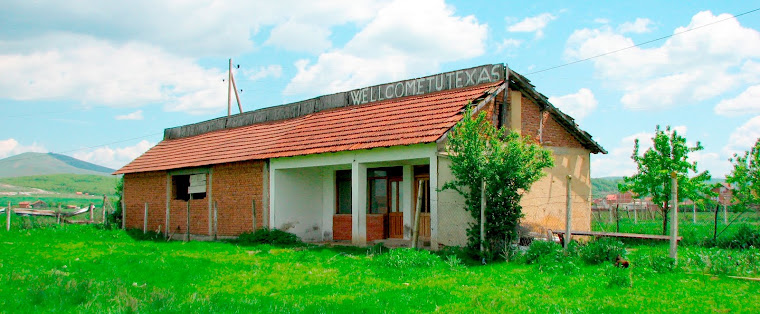I came back to Texas, and while I was there it happened that Whitney Houston died. Next to the bathtub she died in was a gravy boat filled with olive oil that she rubbed into her skin. She was found by a member of her entourage, a woman she called Aunt Mary. There was plenty of unavoidable coverage and speculation: the reasons for her death were likely to be tawdry if not even a tiny bit surprising. I happened on interviews everywhere, with former vocal coaches in jet black toupees and so-called-photojournalists who once accidentally bumped into the singer in a hotel lobby, and everyone in-between. The coverage made me think about her more than I would normally have been inclined to. In mid-1800s Italy she would have been simply legendary. That utterly clear tone revealing something to her audience about the capacity and limits of the human body—her performances something more like ballet, marathon running, or thoroughbred racing. Even so, the emotion was still carefully woven into the fabric like gospel, and she carefully picked and chose her melisma, that melisma that is everywhere now (melisma that was at least partly inspired by Mariah Carey who, faced with the simple force of Houston's tone, could only cope by adding note, after note, after meaningless note. I got nothing against melisma, rightly used, well-timed. But, regardless of what you think of her music, Houston was the end of well-timed melisma.)
In Kosovo they were celebrating the fourth anniversary of independence. My wife texted me from some rooftop bar in the capital. The temperatures had finally risen above freezing that day, the first time in a month during the worst winter that a lot of Europe could remember. The heating company there was hours away from running out of the oil necessary to provide residents their already-rationed few hours of warmth every morning. In Houston it was one of the warmest winters anyone could remember. Over there, avalanches. Over here, regular ol' Houston floods. It seemed like the Apocalypse was happening, and no one hardly noticed. Which is how it will probably actually happen, when it finally does. I spoke with a friend of mine in Houston about so-called hipsters, about how I didn't understand their concerns, their style, their intentions. She asked me what it was that my generation had accomplished, exactly. I could not answer her a single thing, but I knew there was something.
I drove to Spec's and bought a bottle of wine. In the parking lot a man leaned against a pole near my scooter, waiting for me. He wore brown pants with an open fly, a sweater in the warm weather, and a knit cap pulled tight over his head. His hands were thick and brown. He approached me as I kick-started the thing into action again. He asked me about the bike: was it Chinese, didn't I think it was a lot like another make of scooter, and how many cc's, and so on. And once I gave him this opener, he would not be stopped.
He talked about his scooter, back home in Bulgaria. How it came from Italy, and how it rode. He talked about how things were back in Bulgaria then, in 1978. Talked without me asking. How you worked as hard as you could in the factory, for no reward anything close to what the boss made. How he was the best worker in that factory, but he could hardly afford to buy a girl a dinner in the evening. About communism, and how we didn't understand anymore what it meant to be free, but how he had seen freedom once, in the form of a Mexican man, walking the street, twirling a key ring around his finger. How he hoped that Americans would take back their country. I swear that I don't know what he meant there: how racist or left-wing his thoughts might have been.
Once he traveled to Nagasaki, to the obelisk at their ground zero. And as he stood there looking at that memorial he noticed a bug crawling up the jacket of a man standing near him. Excuse me, he said, but there's a bug on your back—let me get it. But the man stopped him. Said he was a Taoist, and could not kill anything, and that he hadn't killed a single thing since being released from the Russian prison camp at the end of WWII. The Bulgarian marveled at this man, a former SS soldier who would not kill a bug, and who came from—in the Bulgarian's estimation—the greatest country in the world: a country that made Weltmeister accordions (a brand that he reckoned to be among the world's greatest), violins, violas, and Mercedes... a car so good that he never drove anything other than a Mercedes. Diesel.
I backed out of my parking space very slowly. I had been sitting on that running scooter for fifteen minutes, and didn't really want to go, but knew the gas tank was nearly empty, and that I might have to push it home pretty soon. I shook his hand once, and five minutes later shook it again. I apologized for leaving, and finally I just did. His name was George. Be careful, he called out after me. I headed home. It seemed like my best experiences came from traveling. I found Rosalie Street, and took it east towards Main. It felt good to be traveling again.
- t
p.s. I love you, Kosovo music. This guy must be the hardest working musician in Kosovo. His posters are everywhere, and he is constantly performing. Here he sends out big love to the diaspora.
p.p.s. I love you too, Houston.

